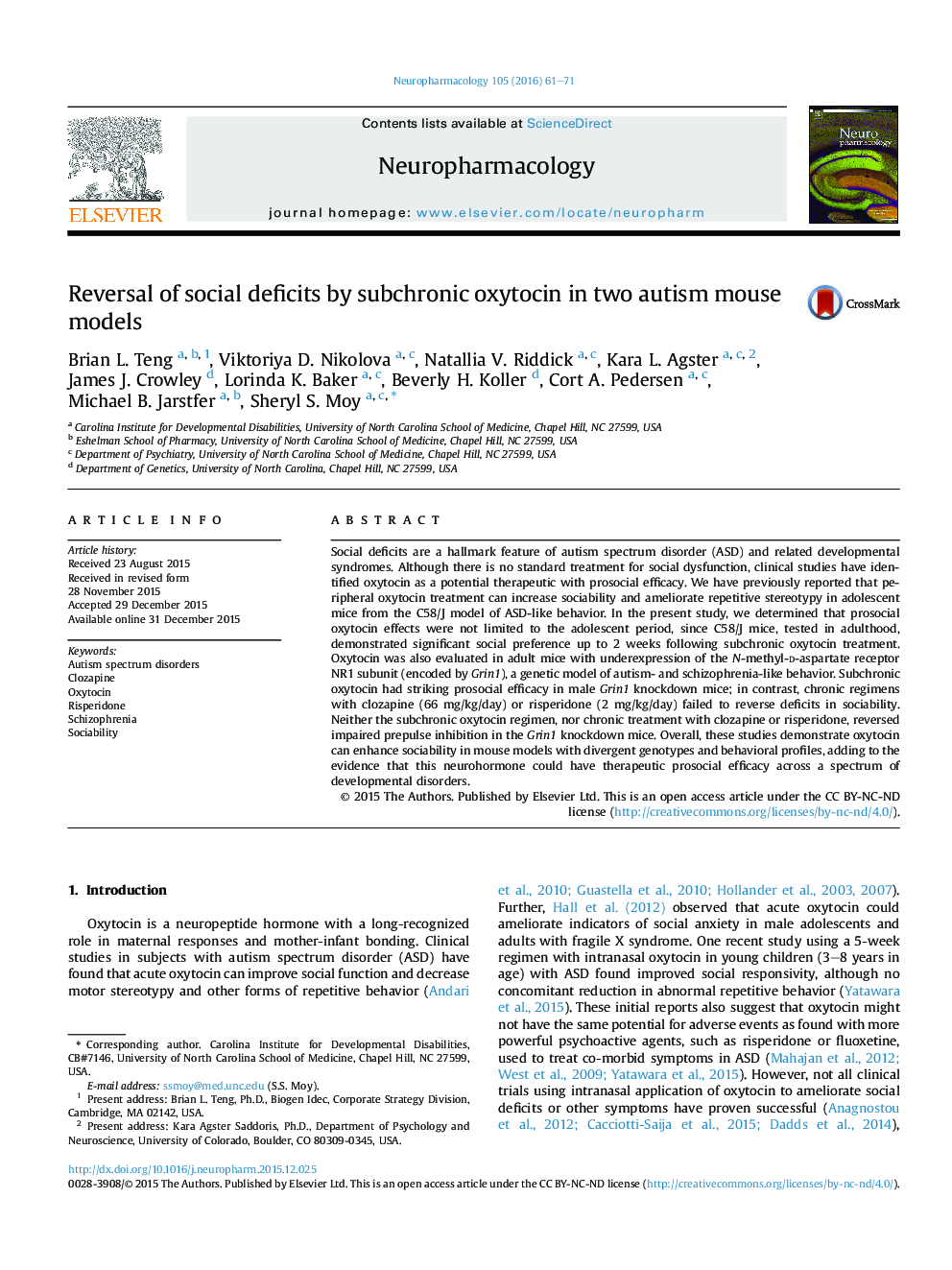| کد مقاله | کد نشریه | سال انتشار | مقاله انگلیسی | نسخه تمام متن |
|---|---|---|---|---|
| 5813330 | 1556610 | 2016 | 11 صفحه PDF | دانلود رایگان |
- Persistent prosocial oxytocin effects were observed in adult C58/J mice.
- Oxytocin increased sociability in C58/J up to 2 weeks following a subchronic regimen.
- Subchronic oxytocin reversed overt social deficits in Grin1 knockdown mice.
Social deficits are a hallmark feature of autism spectrum disorder (ASD) and related developmental syndromes. Although there is no standard treatment for social dysfunction, clinical studies have identified oxytocin as a potential therapeutic with prosocial efficacy. We have previously reported that peripheral oxytocin treatment can increase sociability and ameliorate repetitive stereotypy in adolescent mice from the C58/J model of ASD-like behavior. In the present study, we determined that prosocial oxytocin effects were not limited to the adolescent period, since C58/J mice, tested in adulthood, demonstrated significant social preference up to 2 weeks following subchronic oxytocin treatment. Oxytocin was also evaluated in adult mice with underexpression of the N-methyl-d-aspartate receptor NR1 subunit (encoded by Grin1), a genetic model of autism- and schizophrenia-like behavior. Subchronic oxytocin had striking prosocial efficacy in male Grin1 knockdown mice; in contrast, chronic regimens with clozapine (66Â mg/kg/day) or risperidone (2Â mg/kg/day) failed to reverse deficits in sociability. Neither the subchronic oxytocin regimen, nor chronic treatment with clozapine or risperidone, reversed impaired prepulse inhibition in the Grin1 knockdown mice. Overall, these studies demonstrate oxytocin can enhance sociability in mouse models with divergent genotypes and behavioral profiles, adding to the evidence that this neurohormone could have therapeutic prosocial efficacy across a spectrum of developmental disorders.
Journal: Neuropharmacology - Volume 105, June 2016, Pages 61-71
